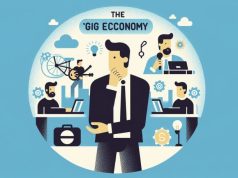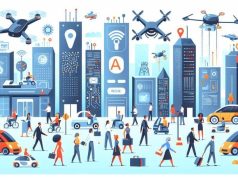In the sprawling ecosystem of the gig economy, freelancers of all ages swarm to projects like bees to a vibrant field of blossoms. Yet, there is an unspoken age diversity within this bustling marketplace. The freelancing world is often portrayed as a young tech-savvy millennial’s game, but what about the seasoned professionals who bring decades of expertise to the table? Today, we are breaking the age barrier to embrace a more inclusive future, where multigenerational freelancers thrive.
The Challenges Facing Multigenerational Freelancers
Age diversity in freelancing embodies a spectrum of challenges and opportunities. Young freelancers may face stereotypes of inexperience and a lack of opportunities to prove their mettle, while older freelancers might encounter biases that question their adaptability or technological fluency. Despite these hindrances, the value of an age-inclusive freelance community is immeasurable.
Younger freelancers bring fresh perspectives, an innate understanding of contemporary digital platforms, and a dynamic approach to innovation. Conversely, older freelancers offer substantial experience, strategic thinking, and wisdom that can only be accrued over time. When leveraged together, these qualities can catapult any project forward.
Innovative Ways Companies Are Integrating Age-Inclusive Practices
Foresighted companies are recognizing the value of age diversity and are adopting innovative practices to engage freelancers from every generation. These include implementing mentorship programs where experienced freelancers guide their younger counterparts, facilitating knowledge-sharing platforms for cross-generational learning, and designing equitable recruitment processes that eschew ageism and value diverse age representation.
Moreover, businesses are starting to foster intergenerational collaboration by setting up mixed-age project teams that can harness the distinct strengths of each age group. These measures not only create a more inclusive environment but also drive creativity and innovation in ways that homogenous groups cannot.
The Importance of Intergenerational Collaboration
The exchange of skills and experience between generational cohorts can lead to groundbreaking outcomes. Younger freelancers can learn about traditional techniques and strategic long-term planning from their older peers, while seasoned freelancers can stay abreast of the latest trends and technological advances through their younger counterparts.
Organizations that facilitate this symbiotic relationship reap the benefits of an agile and adaptive workforce capable of tackling a diverse array of projects and challenges.
Actionable Insights for Creating an Age-Diverse Freelance Community
To cultivate an age-inclusive freelance community, organizations must start by dismantling biases and stereotypes. This can be achieved through awareness programs and age diversity training. Additionally, offering flexible work arrangements can attract a broader age demographic by accommodating different life stages.
Networking events that cater to freelancers of all ages can also help break down barriers, allowing for the formation of supportive and diverse professional networks.
The Future Is Age-Inclusive
As we shift towards a more inclusive future, the narrative of freelance work is being rewritten. Age diversity is not just a feel-good add-on; it is a strategic imperative. Companies that embrace multigenerational freelancers will find themselves at the forefront of innovation and resilience.
It is time for us to celebrate and capitalize on the diversity of ages within the freelance community and recognize that together, we can drive tremendous growth and competitive advantage.
We invite our readers to join this vital conversation and to advocate for a freelance workforce that is truly representative of society at large. After all, inclusivity is not just about making room at the table; it’s about ensuring that everyone, regardless of age, has a voice in the dialogue that shapes our work and our world.


























